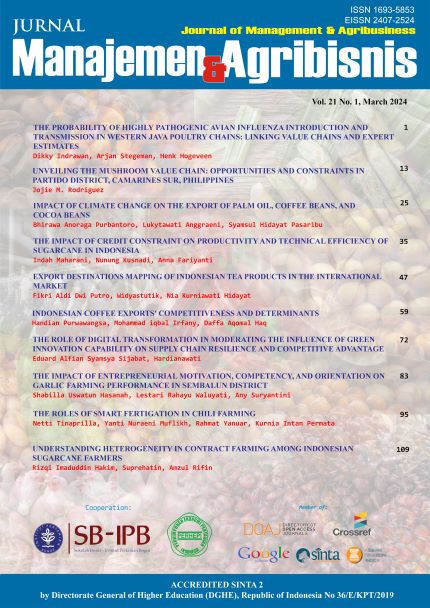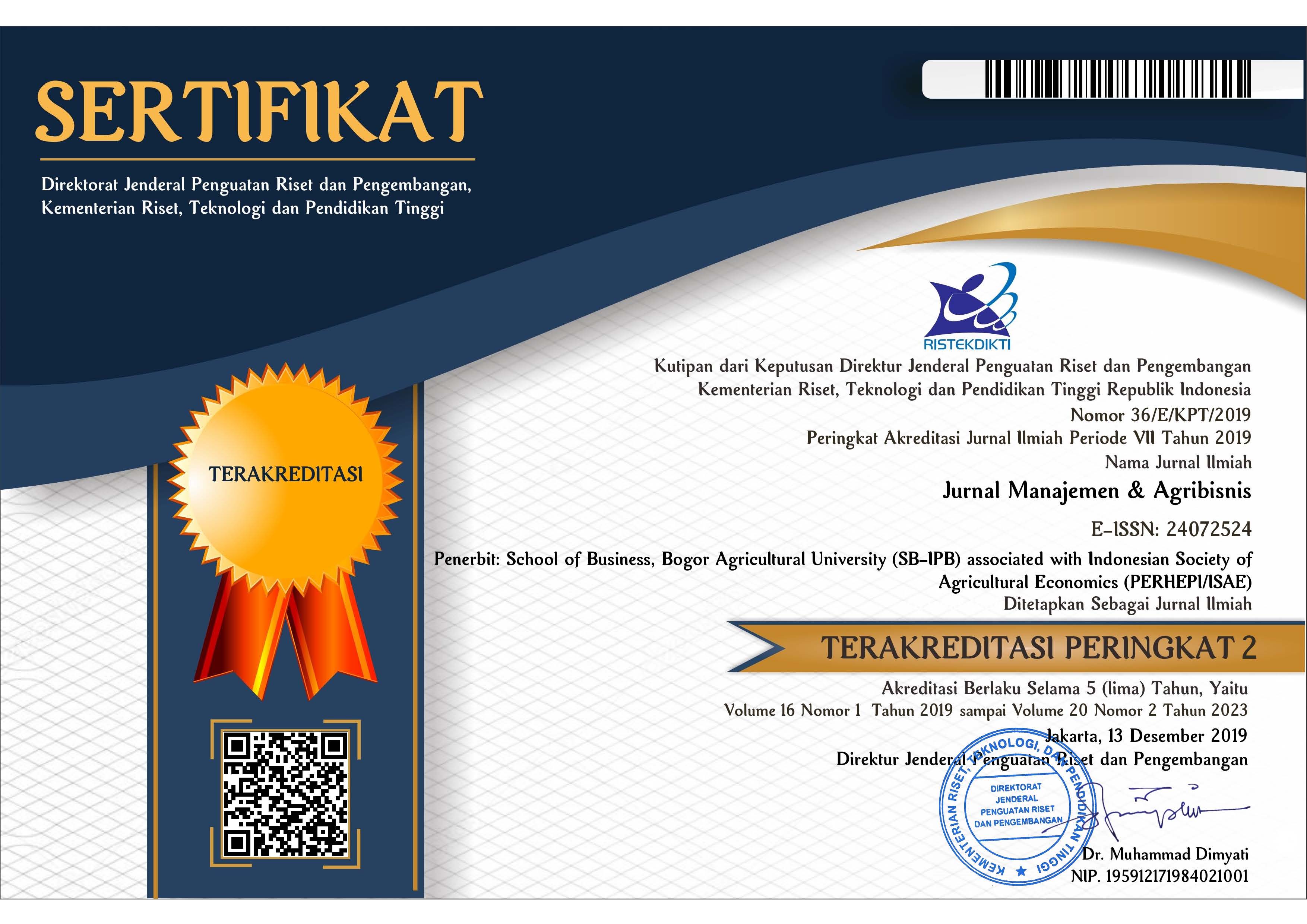Purchasing Behavior and Its Determinants Toward Chicken Eggs in Different Consumer Segments: Evidence From Indonesian Millennial and Z Generations
DOI:
https://doi.org/10.17358/jma.21.1.174Abstract
As the demand for chicken eggs continues to increase, currently Indonesian consumers also have many choices in the decision to purchase good quality eggs in the context of type, quality and place of purchase of eggs. The diverse quality of egg products in the market shows that the Indonesian egg market is increasingly segmented. This research aims to analyze the purchasing behavior of chicken eggs and the factors influencing purchasing decisions in the millennial and Z generations as Indonesia's largest consumer segments. This research used primary data from both online and offline surveys of 365 respondents in Greater Jakarta. Data were analyzed using descriptive statistics and partial least squares-structural equation modeling. The results showed that the millennial generation tends to purchase eggs more in a month and consider nutritional value, while the Z generation tends to be price oriented. The results also showed that price, purchase location and consumer knowledge significantly positively affected egg purchase decision for both the millennial and Z consumer segments. In addition, millennial consumers also consider product qualities and lifestyle in their chicken egg purchase decision. A better understanding of consumer behaviour for chicken eggs among different segments is vital for marketers to efficiently meet the expected and dynamic consumer demand.
Keywords: chicken eggs, consumer segment, millennial generation, purchasing decisions, Z generation
Downloads
Downloads
Published
Issue
Section
License
Authors who publish with this journal agree to the following terms:
- Authors retain copyright and grant the journal right of first publication with the work simultaneously licensed under a Creative Commons Attribution License that allows others to share the work with an acknowledgement of the work's authorship and initial publication in this journal.
- Authors are able to enter into separate, additional contractual arrangements for the non-exclusive distribution of the journal's published version of the work (e.g., post it to an institutional repository or publish it in a book), with an acknowledgement of its initial publication in this journal.
- Authors are permitted and encouraged to post their work online (e.g., in institutional repositories or on their website) prior to and during the submission process, as it can lead to productive exchanges, as well as earlier and greater citation of published work (See The Effect of Open Access).


.png)



